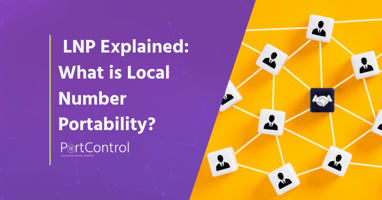In today’s fast-paced world, changing service providers while retaining your phone number has...
Navigating Regulatory Changes in Phone Number Management
Explore the evolution of phone number management regulations and the impact on public utility phone numbers.
The FCC's Role in Phone Number Management
The Federal Communications Commission (FCC) plays a crucial role in the management of phone numbers as a public utility. The FCC is responsible for regulating and overseeing the allocation of phone numbers to ensure their fair distribution and efficient use. By classifying phone numbers as a public utility, the FCC aims to ensure that all individuals and businesses have access to telephone services.
Over time, the FCC has implemented various policies and guidelines to manage phone numbers effectively. These include establishing the North American Numbering Plan (NANP), which is a system that assigns unique 10-digit phone numbers to different geographic regions in North America. The FCC also regulates the process of porting phone numbers between service providers, allowing consumers to switch carriers without losing their phone number.
Additionally, the FCC has implemented regulations to prevent number hoarding and misuse. These regulations aim to combat practices such as number speculation, where individuals or organizations purchase large blocks of phone numbers with the intention of selling them at a higher price. By implementing these regulations, the FCC ensures that phone numbers are accessible to those who genuinely need them.
Legislation and Regulations Impacting Public Utility Phone Numbers
Phone number management regulations have evolved significantly over time, with various legislation and regulations impacting public utility phone numbers. One significant piece of legislation is the Telecommunications Act of 1996, which aimed to promote competition and innovation in the telecommunications industry. This legislation introduced regulations that facilitated the entry of new service providers and allowed for increased consumer choice.
Another important regulation is the Truth in Caller ID Act of 2009, which prohibits the manipulation of caller ID information with the intent to defraud, cause harm, or wrongfully obtain anything of value. This regulation helps to protect consumers from fraudulent activities, such as spoofing, where scammers falsify their caller ID information to deceive individuals.
Furthermore, the FCC has implemented regulations to address issues related to robocalls and spam calls. These regulations require service providers to implement call authentication technologies and provide consumers with tools to block unwanted calls. The Telephone Robocall Abuse Criminal Enforcement and Deterrence (TRACED) Act, signed into law in 2019, strengthens the FCC's ability to combat illegal robocalls and provides additional tools and resources to protect consumers.
These legislations and regulations have had a significant impact on the management of public utility phone numbers, promoting fair competition, protecting consumer interests, and improving overall telecommunications services.
Challenges and Issues with Phone Number Management
While the FCC and other regulatory bodies have made efforts to manage phone numbers as a public utility, there are several challenges and issues associated with phone number management.
One major challenge is the exhaustion of phone number resources. With the increasing demand for phone numbers due to the proliferation of mobile devices and internet-based communication services, the available pool of phone numbers is depleting rapidly. This has led to the introduction of new area codes, number pooling, and other techniques to maximize the use of existing resources.
Another challenge is the rise of number spoofing and illegal robocalls. Despite regulations in place, scammers and telemarketers find ways to manipulate caller ID information and bombard consumers with unwanted calls. This poses a significant problem for both consumers and legitimate businesses.
Additionally, the portability of phone numbers between service providers has also presented challenges. While the ability to switch carriers without changing phone numbers is beneficial for consumers, it requires coordination and cooperation between multiple service providers, which can sometimes lead to delays and complications.
Addressing these challenges and issues requires ongoing collaboration between regulatory bodies, service providers, and other stakeholders to ensure the effective management and protection of public utility phone numbers.
Technological Advances and Their Influence on Phone Number Management
Technological advances have played a significant role in shaping phone number management practices.
The introduction of Voice over Internet Protocol (VoIP) technology has revolutionized communication services and posed new challenges for phone number management. VoIP allows users to make calls over the internet, bypassing traditional phone networks. This has led to the emergence of virtual phone numbers that are not tied to a specific geographic location. As a result, the FCC has had to adapt its regulations to accommodate these virtual phone numbers while ensuring their proper allocation and use.
Furthermore, advancements in mobile communication technologies have increased the demand for phone numbers. With the advent of smartphones and the integration of various communication services, such as messaging apps and video calling, individuals require multiple phone numbers for different purposes. This has led to the need for innovative solutions, such as the use of SIM cards that can support multiple phone numbers on a single device.
As technology continues to evolve, phone number management practices will need to keep pace to address the changing needs and challenges of the telecommunications industry.
Future Trends in Phone Number Regulation
Looking ahead, several future trends are expected to shape phone number regulation and management.
One trend is the increasing adoption of internet-based communication services, such as Voice over IP (VoIP) and messaging apps. As these services continue to grow in popularity, traditional phone numbers may become less relevant. This may lead to a shift towards the use of unique user identifiers or usernames for communication purposes.
Another trend is the integration of phone numbers with other forms of digital identification. With the rise of digital wallets and online authentication methods, phone numbers could serve as a means of verifying the identity of individuals in various online transactions and interactions.
Furthermore, the implementation of advanced technologies, such as blockchain, may provide new solutions for phone number management. Blockchain technology can offer secure and decentralized systems for managing phone numbers, reducing the reliance on centralized authorities.
Overall, the future of phone number regulation will likely be shaped by advancements in technology and changing communication patterns, requiring regulatory bodies to adapt and innovate in order to effectively manage public utility phone numbers.



